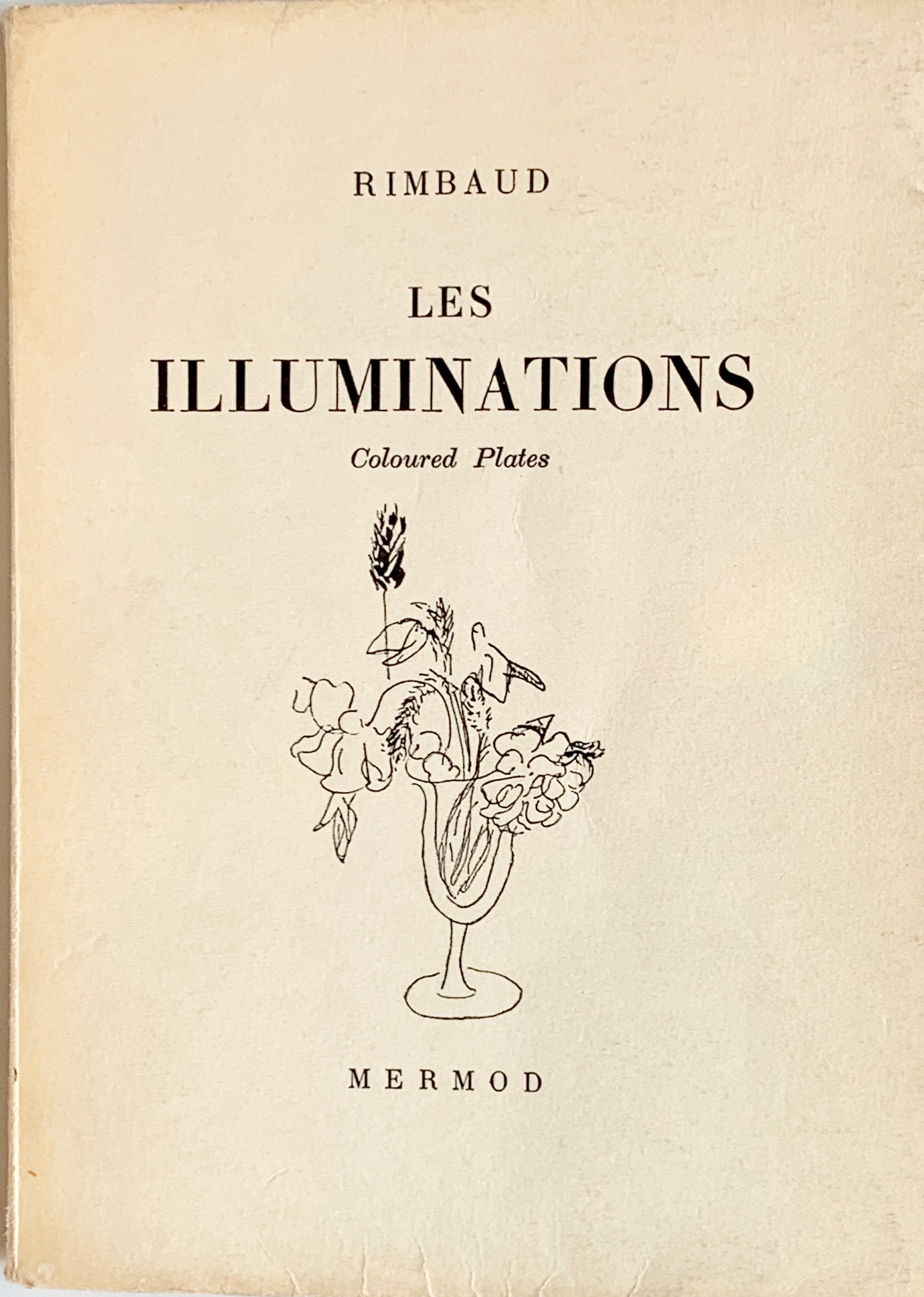
.jpg)
They are modern in a way we associate with verse of the Twentieth Century. It is astounding that these poems, penned when Impressionism had hardly got going, should already look forward to the verbal equivalent of Post-Impressionism and even Cubism. The collection was Rimbaud's farewell to poetry, completed in 1875 before he was even 21. The experience gave me a greater respect for Ashbery's work - but at the same time made it clear that any translator was attempting the virtually impossible. I found the former more demanding but ultimately easier, since the structure of verse forces a search for the most evocative verbal jewel to set in its precise place. In between, I tried translating two pieces myself: MARINE, which is one of the few written in verse, and one of the prose-poems, FLEURS. They were very different experiences, both challenging, but for different reasons.


Only then did I turn to Ashbery's versions and read them through as a single sequence, without looking back at the French. I started by reading each poem in French two or three times, without consulting either the translations or a dictionary. So when I came upon this beautiful bilingual edition with the original French on the left-hand pages and translations by John Ashbery on the right, I was eager to buy it. It is a brilliant work whose wild energy and scintillating colors are the perfect response to the extraordinary imagery of Rimbaud's writing. I first got to know of Rimbaud's astonishing collection of prose-poems through Benjamin Britten's 1939 setting of nine fragments for soprano and string orchestra. Concise and expansive, effortless and intricate, of language and of experience, it remains the best possible compass for getting lost, now made more acutely affecting by Ashbery's new and resonant translation. In its form, in its brevity, in its perpetual instability Illuminations accomplished mutually exclusive ends, including the end of Rimbaud's pursuit of writing. Yet none of these authors has left as deep an impression, with such pervasive force or tangible presence. Rimbaud's work lead my reading on to Baudelaire, Lautréamont, Tzara, Breton, Eluard. My first contact with the work lead to what was probably intended: a slapp happy sense of disorientation imbued with a sustained and profound attraction to the fluidity of meaning and perception, to the images, to the now broken and drowned world overrun: impervious to inference, awash with unexpected associations and "new misfortunes". On a purely subjective note, of all I've read during my lifetime, Illuminations remains the most compelling work of literature I've encountered. These are high water marks for twentieth-century cover design! I plan to check out the Wyatt Mason volumes too, which promise a much-needed replacement for the Wallace Fowlie complete works. And the Varese sounds more passionate, and tense, even somewhat formal on occasion-the Ashbery diction sometimes seems inappropriately flabby and demotic.įurther, if you stick with the New Directions books you get certifiable artistic masterpieces on the cover-Ray Johnson for the Illuminations, superb Val Telberg photo for the Season in Hell. The earlier phrasing naturally is almost always better. Comparing it to the Varese, often what changes were made were merely so as not to "repeat someone else's successful version," as JA puts it. There is something bloodless and unconvincing about the writing here, falling as it does somewhere between vernacular naturalness and strict faithfulness to the cognates. I don't think he was just trying to be nice, or sound humble, I think he states the case. The Varese is still pretty good.The poet Donald Revell, a friend of mine, has published excellent translations of both A Season in Hell and Illuminations." I was doing it really for the enjoyment of it, and for the possible after-effect it might have on my own writing.I like Wyatt Mason's version. And as Ashbery put it, "I didn't feel I was going to be coming up with a definitive translation. The idea of a translation came from the publisher, who was looking for a follow-up to Heaney's Beowulf, their best-selling pairing of well-known contemporary poet with classic text. In an interview in Rain Taxi last year, the ever candid and clear-sighted John Ashbery made a couple of admissions that put this project into perspective. I'm sorry: this strikes me a most unnecessary book.


 0 kommentar(er)
0 kommentar(er)
